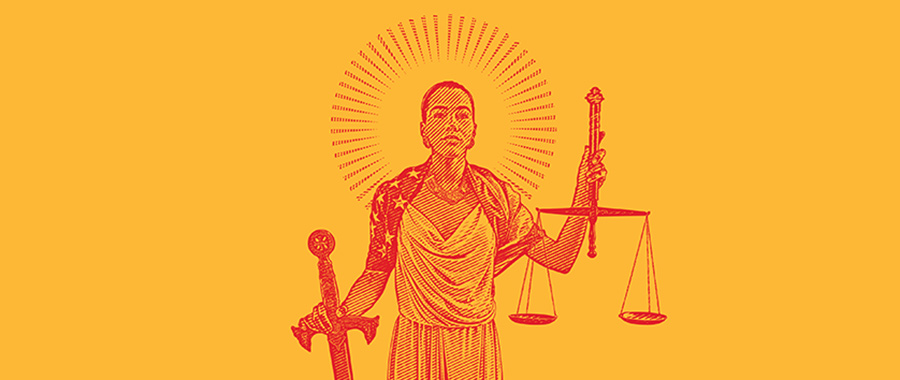Justice, a term often evoked in philosophical discussions and socio-political discourses, takes on a unique resonance within the Bahá’í framework. As believers in the principle of the oneness of humanity, Bahá’ís consider justice not merely as a legalistic concept, but as an intrinsic spiritual quality that influences individuals and societies. But what does it truly mean to embody justice as a spiritual attribute? This inquiry leads us into a deeper exploration of justice from a Bahá’í perspective.
At its core, Bahá’í teachings emphasize that justice must prevail as a fundamental virtue in sustaining a harmonious and synchronized society. The Bahá’í Faith posits that justice operates on two levels: personal and institutional. On a personal level, it is the duty of each individual to cultivate justice within themselves, while on an institutional level, it translates into the mechanisms that govern societies. But here lies a playful yet perplexing question: can justice exist without love? Can one truly be just without fostering a profound sense of compassion and empathy? This challenge compels individuals to reflect on their internal motivations and the societal constructs that shape their understanding of justice.
To comprehend the Bahá’í view of justice, it is crucial to investigate its foundational attributes. One of the primary tenets is that justice is inextricably linked to truth. A Bahá’í believes that if one is to be just, they must first seek the truth in every situation. This pursuit of truth requires an open and discerning mind—attributes that are cultivated through education, experience, and a sincere desire for understanding. Consequently, justice transcends mere execution of laws; it embodies a quest for equity and fairness in the pursuit of truth.
Furthermore, the concept of equity must be examined alongside justice. In Bahá’í thought, equity refers to fairness and impartiality, where individuals are treated according to their needs and circumstances, rather than a strict adherence to uniformity. This distinction is paramount, for it allows for the recognition of the diverse backgrounds, cultures, and situations of different individuals. Thus, justice becomes a dynamic process rather than a static token, fostering adaptability in an ever-evolving world.
The spiritual dimension of justice further accentuates its importance. In the Bahá’í teachings, justice is not merely a human construct; it is a divine principle. Hence, individuals are called to reflect God’s attributes, including justice, in their actions. This transformative process demands a conscious effort to align one’s character with spiritual ideals. It necessitates overcoming prejudices, biases, and other roadblocks that cloud one’s perception of justice. The challenge lies in the ability to critically assess one’s actions and beliefs in light of a higher moral compass, continually striving for improvement.
Moreover, the collective aspect of justice merits attention. Bahá’í teachings emphasize the interconnectedness of humanity, positing that justice is not just an individual pursuit but a collective responsibility. Communities are urged to uphold justice as a societal norm, engendering a culture of fairness and accountability. This communal approach invites individuals to work collaboratively, standing unified against injustice and inequality. The question arises: how can communities fortify their resolve to cultivate justice in a landscape often marred by division and strife?
Systemic barriers often hinder the consistent application of justice. Among these barriers are prejudices entrenched in cultural norms, economic disparities, and political corruption. The Bahá’í community recognizes these impediments and actively engages in dialogue and action to dismantle them. This is not merely an act of charity; it embodies their spiritual commitment to eradicating injustice in all its forms, thus reinforcing the notion that true justice is universal and inclusive, extending beyond geographical, racial, and socioeconomic boundaries.
Education plays a pivotal role in the manifestation of justice as a spiritual quality. The Bahá’í Faith places a strong emphasis on education, not just in the traditional sense, but encompassing moral and ethical teachings that spotlight justice. The assertion is that a well-informed and morally grounded populace is better equipped to advocate for justice. Engaging with diverse cultures and perspectives fosters empathy and strengthens the commitment to justice, challenging individuals to cultivate a global viewpoint rather than a parochial one.
In contemplating the manifestation of justice in daily life, Bahá’ís are encouraged to embody this principle in all interactions. Practicing justice manifests in honest dealings, upholding human dignity, and standing up for the rights of others, especially the marginalized. Challenges, such as standing in opposition to social injustices, can be daunting but serve to refine one’s character and deepen one’s spiritual convictions. Ultimately, the act of advocating for justice not only impacts others but enriches one’s own spiritual journey.
As we reflect on justice as a spiritual quality within the Bahá’í paradigm, it is clear that it demands a multi-faceted approach—one that intertwines personal commitment, communal responsibility, and a relentless pursuit of truth. Although the journey toward achieving genuine justice is fraught with challenges and perplexities, it remains an essential expedition grounded in love, compassion, and unity. The call to justice is a call to action, urging all individuals to transcend their personal confines and to actively participate in the ongoing cultivation of a just and equitable society.
